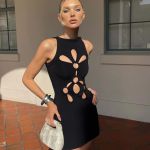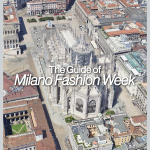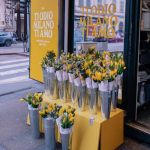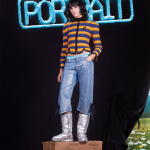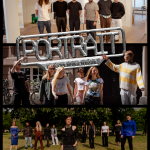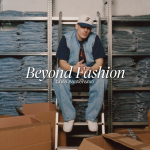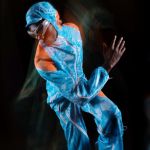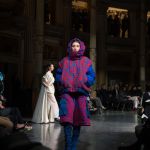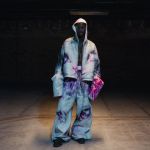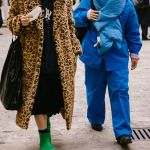
The future of street style
How will one of the most important sectors of the industry survive the digitalization of Fashion Weeks?
May 8th, 2020
Over the last few weeks, there have been announcements of the digitization of several Fashion Weeks, currently, the only possible solution in times of pandemic, an alternative inaugurated by the Asian FW, the first to be strongly affected by the spread of COVID-19, and now also adopted from the Fashion Weeks in London, Milan and Paris. While doubts persist as to what extent digital events can actually replace physical ones, another aspect of these events, which has become increasingly central in recent years, must be also considered: street style.
As time went by, the pictures taken outside the shows have gained an increasingly important value, not only for aesthetic reasons but above all for commercial reasons: those shots are the basis of trend analysis, market research and influencer marketing operations. In light of the latest developments, and in the context of an industry that needs and has been asking for a radical restructuring for some time, it is right to ask ourselves what the future of street style photography will be.
A transition year
One could summarize in these words the thought of many street style photographers towards the future of their job, the upcoming months will be difficult, empty in some ways, but they will not mark the end of this sector in its entirety. "Although the situation is very bad and the future is uncertain for everyone, I think the street style will survive the crisis, just because it is part of the industry, part of the fashion circus", has declared to nss magazine Julien Boudet, a world-famous photographer, a fixture of shows and backstage, as well as the author of the last Prada Resort campaign. "I think street style photography is one of the elements that create excitement around fashion weeks, especially among the end consumers on social media and I personally believe it’ll survive the current crisis" agrees Jeremy Alvarez, a well-known photographer of European FWs. Convinced of the survival of the sector as well is Su Shan Leong, a photographer always travelling between Seoul and Paris. "Street fashion has always had an impact on consumers and fashion trends. After the lockdown, people might end up dressing up more because they miss not doing so during the lockdown. Additionally, the effect of this pandemic might bring about a new concept and amplifying the interpretation of fashion trends; such as dissecting and reworking protective garments, fabric manipulation to ensure comfortability, structured garments, interpreting nature in prints, silhouettes and concepts."
While focusing on the future, Shezi Manezi, a staple name of London Fashion Week and close collaborator of several magazines and brands, reminds us that many of the photographers who crowd the sidewalks before the shows are freelancers, professionals left without work in these weeks of lockdown. "Many who dedicate their lives to this passion are having to stay at home now and not being able to work and create during fashion week can be very frustrating. Some might have to pick up another job to get over these times and some who are fortunate enough can pass these times and recharge. However I believe there is light at the end of the tunnel, but it will be a year transition before street style will be back to normal."
Antoine De Almeida, a prominent photographer of European fashion weeks, has an opposite opinion. "I already feel the wider public has lost interest. Street style shifted from a discipline where we were photographing industry insiders and professionals who dress in an interesting way, because that’s who they really are, to photographing fake influencers dressed in full by a PR agency. I think the COVID-19 crisis has accelerated the loss of interest for this, at least for a while, because it has become inauthentic."
A digital alternative
There are now many fashion houses that in these lockdown weeks have experimented with FaceTime and Houseparty to create homemade shootings. With the digitization of many events, such as the Met Gala, one wonders if a digital future is also possible for street style.
If for Jeremy Alvarez this would be at least a "complicated" alternative, and Alexandre Gaudin, one of the most appreciated fashion and street style photographers in the world, adds ironically that a drone would be needed to do it, in general, there is an opening towards creative solutions that might allow continuing working despite everything.
Raimonda Kulikauskiene, street style photographer working in Copenhagen, London and Paris, feels optimistic about this. "I think we all street style photographers are now sitting and exploring all possibilities, all new ideas and crazy thoughts. Every day we find ourselves asking would this or that be possible? There are some brands that are planning to go more towards online and even Virtual Reality so naturally, I have questions if it is possible for me to do something with this... So I am sure there will be new angles and new opportunities after this virus will be gone." In the last few days, Boudet has made several shootings on FaceTime and HouseParty, and he says he's open to the idea of exploring a digital street style.
Finally, for Su Shan Leong and Antoine De Almeida, it would be very difficult, if not impossible, to digitally replicate special moments such as those of Fashion Week without experiencing them firsthand.
A necessary reorganization
Something on which all the photographers interviewed by nss magazine agree is the absolute need for a deep restructuring of the Fashion Week Calendar and the current model of the industry. Saint Laurent's decision to drop out from the official schedule was favourably received by everyone.
"I’ve always thought that there were too many fashion shows, too many fashion weeks, too many brands… We need to change this system, have fewer collections per year (no more cruise collections for instance) and fewer shows in general; and this is my point of view as a photographer, which could hurt my business eventually", admits Julien Boudet. "Number of people wish to come back to a simpler model; only two collections a year, no more pointless collabs, no more trashy merch…But that sounds a bit utopian to me. There is always a potential for growth, customer acquisition and too much money at stake for brands and big luxury groups to just walk away", continues De Almeida, who adds "I’m pretty pessimistic and don’t think we’ll ever get there, unfortunately. It’s a broken system and if you don’t change the people at the top of it, nothing will change".
"Now is the time to re-think. Instead of a catwalk, we’ll get to experience online interviews, podcasts and digital showrooms. But I can also imagine that some brands might not be ready in time and will have to push for a later date, which could also result in a smaller collection due to production and resourcing delays... Majority if not all Fashion houses will be planning differently, more cost-effective and probably go back to square one. Instead of spending money on building a big theatrical set and only vital attendees will be invited to the shows. It will surely be interesting to see how the next 12 months will look like", is the idea of Shezi Manezi.
Speaking of digitalization, another issue that has held the stage in recent months in the world of fashion, that of sustainability, might finally reach the attention it deserves. For Su Shan Leong "it's great for fashion brands to reconsider the sustainability of fashion week and its impact on the environment. I understand that brands use fashion week as a form of marketing campaigns. However, this pandemic could be a catalyst for change that brand should carefully look into." Jeremy Alvarez feels the same way. "The sustainability topic has been on the table for years now and the changes are for the most part hardly noticeable. Digitalization could be one of the options as it would mean less travelling and hence a more eco-responsible approach. However, I don’t personally think Fashion weeks will all go fully digital. The physical shows and the effervescence that they create in a city (exposure, employment opportunities, tourism…) represent a very significant financial windfall and I don’t think the industry is ready to give up on that. For the moment, and given the situation, the first step will probably be a merger between men’s fashion weeks and women’s fashion weeks but mainly for budgetary reasons."
According to Raimonda Kulikauskiene's vision, what has been achieved is a very unstable balance between creativity and pure business. "We all shoot more or less the same girls every year and they are dressed up in the same brands. They are working a lot of course and they're trying to be very creative, and I like them all a lot and I honestly think that it is not easy work. it is just so big now and sometimes look overdone a bit. Brands themselves are spending a lot of money and using a lot of resources to make the shows and I think this should be done more thoughtfully. And you know at the same time it is a chain, that's how it works, that's how we all earn money. So it is not that easy to change something, you really really have to want that, but the chain is so long here."
Finally, for Alexandre Gaudin "there’s gonna be a rethought of Fashion Week for a few times until the end of the pandemic. In the long term, I think it will be back to the normal because Fashion Week it’s a good opportunity to reunited every people from fashion in once."














